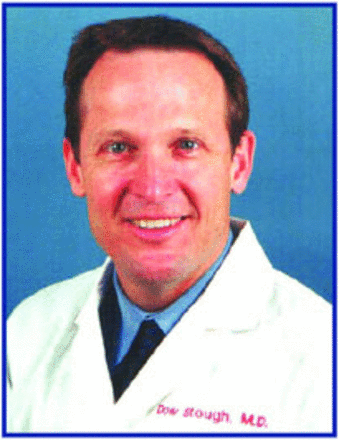
The 2016 ISHRS World Congress in Las Vegas featured Dr. Alan Jacobs as guest speaker. Dr. Jacobs is a Neuroendocrinologist in private practice after a stint as Assistant Professor of Neurology at SUNY/Downstate Medical Center. In 2003, he opened his clinical practice in Behavioral Neurology, Memory Disorders and Neuroendocrinology in Manhattan. He has seen over 500 cases of persistent sexual, emotional, and cognitive impairment, some of which he directly attributes to finasteride use. It is from this extensive experience and knowledge that he presented a talk titled “Post-Finasteride Syndrome and the Neuroendocrine System.”
By definition, Dr. Jacobs believes PFS is a side effect of the drug finasteride, and it is primarily a sexual impairment phenomenon. Many cases have accompanying depression and cognitive impairment occurring simultaneously. In some cases, it is not reversible and can persist long term after discontinuing the medication. Dr. Jacobs recalled his first case involving a hedge fund manager who reported experiencing a “brain fog” and sexual dysfunction very similar to drinking 3-4 glasses of wine. This brain fog had persisted for 1.5 months. The patient had been on finasteride for 10 years. He stopped the finasteride and noticed his brain fog and sexual dysfunction improved. He went back on finasteride and all of his symptoms recurred. The patient’s DHT and A-DIOL glucuronide were very low. Following discontinuation of finasteride, his A-DIOL glucuronide normalized. Dr. Jacobs stated he became involved with studying this syndrome after this case and reports there may be common neuroendocrine findings in other cases. A low FH and LFH, low bioavailable testosterone, and finally the biotestosterone/estradiol testosterone is altered. He gave a lengthy expose on testosterone biotransformation and noted that testosterone itself can be reduced by 5a-reductase to 5a-dihydrotestosterone (Figure 1). It can also be reduced by 5b-reductase to 5b-dihydrotestosterone and a third pathway involves reduction by aromatase 17b-estradiol. The mechanisms of production of PFS is theory, but it appears the testicular function in these individuals is normal. He also stated the pituitary gonadotrophs function is normal in the cases he studied. The hypothalamic GnRH cells may be the area of dysfunction. This would involve the limbic HPG axis. The GnRH is released at various times in life by stimulation of various neuropeptides, one of which is a hypothalamic neuropeptide kisspeptin. Kisspeptin is a potent stimulus for GnRH secretion. Dr. Jacobs believes this may later be found to play some sort of role in PFS (Table 1).
Mechanisms of PFS (Credit: Alan Jacobs, MD. “Post-Finasteride Syndrome and the Neuroendocrine System.” Presented at the ISHRS 24th World Congress, Las Vegas, Nevada, USA. September 2016.)
Several other potential processes were discussed, including the phenomenon of epigenetics. Specifically, there have been cases of persistent sexual dysfunction after discontinuation of SSR reuptake inhibitors that may be linked to epigenetic mechanisms. A similar occurrence has been reported with isotretinoin. Concerning genetics and finasteride, reference was given to an article that demonstrated the smaller the CAG-repeat number, the larger the improvement with finasteride. CAG counts are important in the axon 1 region of the androgen receptor gene. The CAG-repeat length of axon 1 of the androgen receptor has shown causal interactions with depression, personality traits, body composition, sex hormone levels, libido, and other findings, so it would follow that certain individuals are predisposed to react differently to finasteride depending on their genetic makeup.
A recent article posted in the Journal of Clinical Endocrinology and Metabolism showed no differences in the sequences of AR, SRD5A1 and SRD5A2 genes among symptomatic finasteride users versus asymptomatic users. Dr. Jacobs was critical of the methodology used in the genetic testing of this particular study. He reported that although the study mentioned above was sponsored by The Post Finasteride Syndrome Foundation, and was largely negative, it didn’t rule out an epigenetic effect. He believes the same epigenetic effects from various drugs could cause similar symptomatology, specifically among users of antidepressants, isotretinoin, and 5a-reductase inhibitors.
Dr. Jacobs’s discussion was well received by the Society, but key questions remain. Audience members voiced their concerns. Chiefly, PFS was not reported in the literature for the first 10 years the drug was on the market. Hair transplant surgeons are responsible for prescribing a large amount of this medication yet there was no mention on PFS for the first 10 years of the drug release. Why all the sudden reports? Could this drug really be responsible for the PFS or could it simply be coincidental epigenetics? In other words, would these men have suffered the same syndrome whether or not they were on drug? Does epigenetics explain this occurrence after SSRIs, 5ARs, and isotretinoin? My own take-home lesson from his talk was if a young man has any history of depression, mood swings, or sexual dysfunction, then do not prescribe finasteride for him. He may just have the wrong set of genes. The finasteride syndrome findings should still be studied along with the concept of a coincidental epigenetic phenomenon.
- Copyright © 2016 by The International Society of Hair Restoration Surgery







